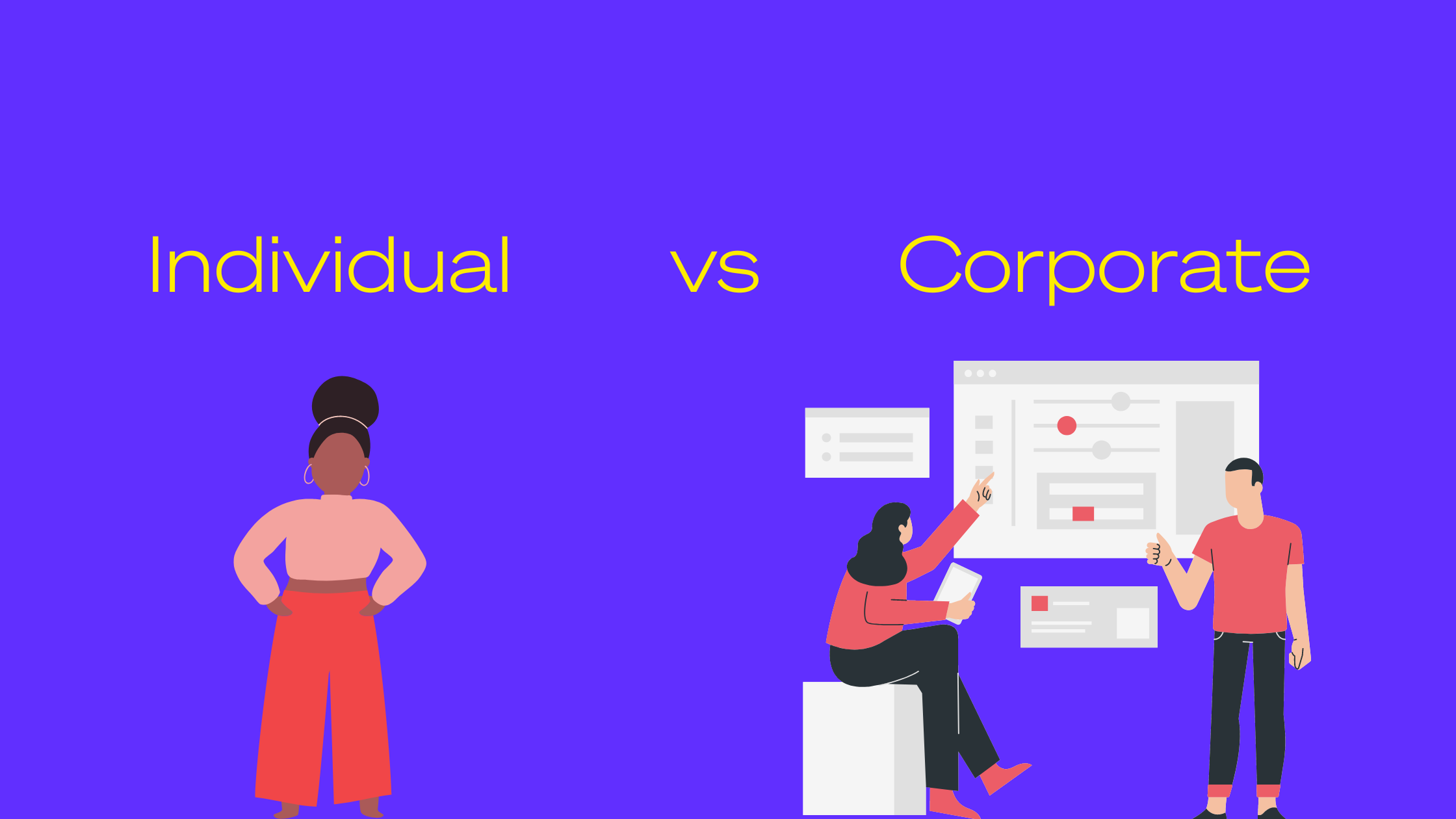The Difference Between Corporate and Individual Trustees
Many of our clients have a trust – they hold many benefits and it’s a structure that can work for a variety of reasons. Did you know there are both corporate and individual trustees? It’s a point of confusion for many, and we wanted to clear up the difference between the two. We think someone said knowledge is power? Read on 😉
Top Highlights
- Individual Trustees: Offer a straightforward and cost-effective setup but come with personal liability risks and potential complications in distinguishing between personal and trust assets.
- Corporate Trustees: Provide limited liability, clearer asset separation, and simplified succession planning, though they involve higher setup costs and additional administrative responsibilities.
- Choosing the Right Trustee: The decision between individual and corporate trustees impacts asset protection, legal liability, and administrative complexity, making it crucial to align the choice with the trust’s objectives and the beneficiaries’ needs.

What is a trust?
A trust is actually a legal arrangement. Trusts are not separate legal entities; they are however treated as a separate entity for taxation purposes. Generally, trusts are used for asset protection purposes and can provide tax benefits. The tax benefits are due to the distributions of the income distribution which allows money to be allocated to those in different marginal tax brackets, allowing lower average rate of tax across a family group.
What is a trustee?
Trusts can have one or more Trustees. A Trustee manages and holds assets for the benefit of one or more beneficiaries under the trust structure. The benefits of the trust’s assets may be received by the beneficiaries through income or any other proceeds the trust distributes to them.
The trustee plays a pivotal role in trust administration and has significant control over the trust. Their responsibilities are outlined in the trust deed, which specifies:
- Owns the trust’s assets
- Makes distributions to the beneficiaries
- They must keep proper records and books
- Avoid conflicts of interest
- Not benefit from its position as a trustee
- Exercise reasonable care in trust administration
- Act in good faith
Although it is possible to use an already registered company as a trustee, this is generally not recommended. It is best to register a new company to act as trustee, so that:
- Its sole purpose is acting as trustee; and
- There have been no activities undertaken to-date which may affect the company.
Individual Trustees: A Personal Approach
Opting for individual trustees offers a personal touch that aligns well with trusts managed within family groups or close circles. This approach allows individual fiduciaries to play a direct role in the management and administration of the trust, fostering a sense of ownership and accountability. However, while personal trustees provide a simpler and often less costly solution, they also carry certain risks and limitations that need to be carefully evaluated.
Advantages of individual trustees:
Individual trustees are a popular choice for those looking to establish and maintain trusts on a more personal level. Here are the key benefits:
- Low management and setup costs: The setup and ongoing management expenses are minimal compared to appointing a corporate trust manager.
- Easy to set up generally: Appointing a trustee requires only the signing of the trust deed and a commitment to fiduciary duties.
- Flexibility: The structure provides the trustee with the ability to adapt decisions to specific circumstances, demonstrating high estate trust flexibility.
The individual signs the trust deed and a consent to act as the trustee and take responsibilities for managing the trust. They also perform the role of trustee by making distributions through the trust.
Disadvantages of individual trustees:
While private trustees offer simplicity and cost savings, there are significant drawbacks to this approach:
- The individual trustee may be responsible for legal issues with the trust
- Difficulties in distinguishing between trusts and the trustees’ assets
- In the event of a death the trust’s assets will need to be allocated to another entity
Transferring assets is a lengthy process that requires many documents and if switching entities and shares and property lots of administrative challenges may arise.
Corporate Trustees: An Overview

Corporate Trustees are companies that act as the trustee of a trust. Corporate Trusts are often incorporated having a sole purpose of acting as trustee, which means that the company won’t conduct business. Corporate Trustees have shareholders and directors. The directors of the corporate trustee control the trust and therefore control the distributions.
Advantages of a Corporate Trustee
Opting for a corporate trustee brings numerous benefits, enhancing both trust administration and asset protection.
- Limited liability for individuals: If there are any legal responsibilities it means that the company is legally responsible instead of the directors.
- Easier to separate the assets of the trust : As the assets are generally held in different names, it can be easier to distinguish between the trust’s and the individual trustee’s personal assets. This distinction enhances trust fund administration and simplifies estate trust management.
- Greater asset protection: Since asset separation is more clearly defined, the use of a corporate trust manager ensures that assets held in a trust are shielded from personal liabilities. If, for example, a person gets sued, assets within a separate trust remain the property of the trust structure, reducing liability exposure for the individual.
- Simpler succession: A corporate trustee allows for succession planning that is straightforward. Since a company cannot ‘die’, the company continues to act as trustee. This ensures administrative efficiency, the title to the assets would not change, so the trust’s assets do not need to be transferred in the case of the death of a director. The trust remains under the professional oversight of the corporate trustee, enhancing continuity and simplifying probate process requirements.
Disadvantages of a Corporate Trustee
The main disadvantages of having a corporate trustee include:
- Additional set-up costs: The cost comparison of trustee services reveals that corporate trustees often involve significant fees for their professional expertise and administration.
- Maintaining records for the entity: A corporate trustee requires strict record-keeping and detailed reporting to ensure compliance with trust administration standards. This involves maintaining detailed records for the entity, including fiduciary duties fulfilled, meeting minutes, and regular financial audits.
Corporate vs Individual Trustees: Key Comparisons
When deciding between an individual trustee and a corporate trustee, understanding the key differences can help you choose the right option for your trust’s needs:
| Individual Trustee | Corporate Trustee | |
| Cost | Low set-up and management costs: An individual fiduciary generally incurs minimal expenses, making it a cost-effective option. | Higher costs: Establishing a corporate trustee involves additional expenses, such as company registration and ongoing ASIC fees. |
| Lifespan and Succession | Changes require a deed of appointment and transferring trust assets to the new trustee, creating administrative burdens. | Seamless succession: A corporate trustee remains the same legal entity even if directors or shareholders change, avoiding asset transfer issues. |
| Liability | Unlimited liability: Personal assets are at risk if trust liabilities or debts cannot be paid, increasing personal exposure. | Limited liability: As a separate legal entity, the corporate trustee provides better asset protection for directors and shareholders. |
| Asset Management | May lead to confusion in differentiating between personal assets and trust assets, especially without clear records. | Ensures clear separation of assets by holding trust assets in the corporate entity’s name, improving administrative efficiency. |
| Expertise | Variable expertise: Depends on the individual’s knowledge and ability to handle trust administration effectively. | High expertise: Corporate trust managers typically offer professional services and asset management expertise. |
| Professionalism | Offers a personal touch suited for family estate plans or small trusts but may lack formal operational standards. | Provides a high level of professionalism and ensures impartial decision-making, beneficial for complex or large trusts. |
| Trust Structure Impact | Affects liability exposure significantly due to direct personal responsibility. | Reduces personal liability, making it suitable for scenarios requiring extensive legal and financial protections. |
Though there are some additional costs and challenges associated with setting up a trust with a corporate trustee, the benefits of doing so often outweigh the disadvantages.
We know this is a dense topic, but it’s important to understand your options properly (and why we may or may not recommend certain structures). The key takeaway here is: if you decide to set up a trust, you will need to appoint a trustee to control the trust. A trustee can be either:
- An individual trustee (a person); or
- A corporate trustee (a registered company).
Setting up a trust with a corporate trustee may require more time and additional cost as you will need to register a company, but there are many benefits associated with doing so. These benefits include greater asset protection and limited liability. In many cases, a corporate trustee is the best option despite the higher setup costs.
We hope that answered some of your trust related questions… but if you’ve still got some for us, get in touch! We’re happy to help.














